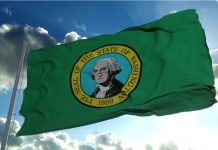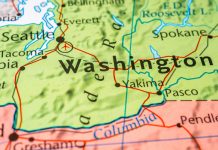Shoalwater Bay Indian Tribe has called out card room operator Maverick Gaming, accusing the firm of ‘seeking to wipe out every carefully negotiated tribal gaming compact in Washington State’ as the two parties become embroiled in a legal dispute.
Back in January, Maverick Gaming brought forward litigation in the United States District Court for the District of Columbia to contest an application of the Indian Gaming Regulatory Act (IGRA) to allow the firm to expand its operations across Washington state.
Shoalwater Bay Indian Tribe accuses Maverick Gaming of ‘violating’ sovereignty
Maverick’s CEO, Eric Persson, is a member of the Shoalwater Bay Indian Tribe however the tribe launched a dramatic attack on one of their own, claiming he is ‘violating tribal sovereignty’.
Additionally, the tribe has filed legal action in federal court in Tacoma, seeking to intervene in Maverick’s pending lawsuit.
It stated that the firm already owns nearly half of the neighborhood card rooms in the state, and requested the court to allow card rooms to offer every form of gaming offered at tribal casinos, including slots and sports betting.
“We did not take this action to seek the dismissal of Maverick Gaming’s lawsuit lightly. It pains us to have to legally oppose a member of our own tribe,” said Charlene Nelson, Chair of the Shoalwater Bay Indian Tribe.
“But Eric Persson’s lawsuit left us no choice. If successful, this self-serving case would cause irreparable harm to historically marginalized tribal communities and to the general public as well.”
She added: “It is also clear to us that Maverick’s lawsuit is just one prong of a broader national assault on tribal sovereignty. It’s not a coincidence that the high-powered law firm representing Maverick is the same firm that is also challenging the federal Indian adoption law before the US Supreme Court.
“Just as tribes are building economic independence and regaining their self-reliance, there are powerful forces at work seeking to roll back the clock and take away what we have fought so hard over the years to restore.”
Bringing forward legal litigation
The legal filing sees the representatives of the tribe claim that Persson is attempting to “destroy, through his requested prayer for relief in the instant litigation, the major source of employment and discretionary revenue for his own Tribe… Accordingly, the Tribe is compelled to seek limited intervention in this case and bring an end to his efforts to undermine his own Tribe’s very efforts to achieve economic self-sufficiency and provide adequate governmental services to its membership.”
Furthermore, the tribe claims that the tribal communities of Washington are the true targets of Maverick’s litigation efforts, not the US government or state officials as outlined in its legal case. This is due to tribal communities being sovereignly immune therefore it is illegal to sue them.
The Washington Indian Gaming Association has long been a critic of Maverick’s plans and, in May, lauded the decision to move the operator’s case to US District Court for the Western District of Washington from the court in DC.
“Washington’s tribes stand united behind the Shoalwater Bay Indian Tribe. Maverick’s lawsuit makes a mockery of the federal Indian Gaming Regulatory Act, which has been the foundation for growing tribal self-reliance over the last three decades,” added Rebecca George, Executive Director of the Washington Indian Gaming Association.
“The intent of IGRA was to help tribes to regain their self-reliance by ensuring they have the ability to conduct carefully regulated gaming activities, producing a revenue stream they can use to fund critically important services for their members and their communities.
“It was never intended to give private, non-tribal gambling companies the right to override state laws and offer every gaming activity that tribes offer in neighborhood card rooms spread across nearly every community in the state.”














